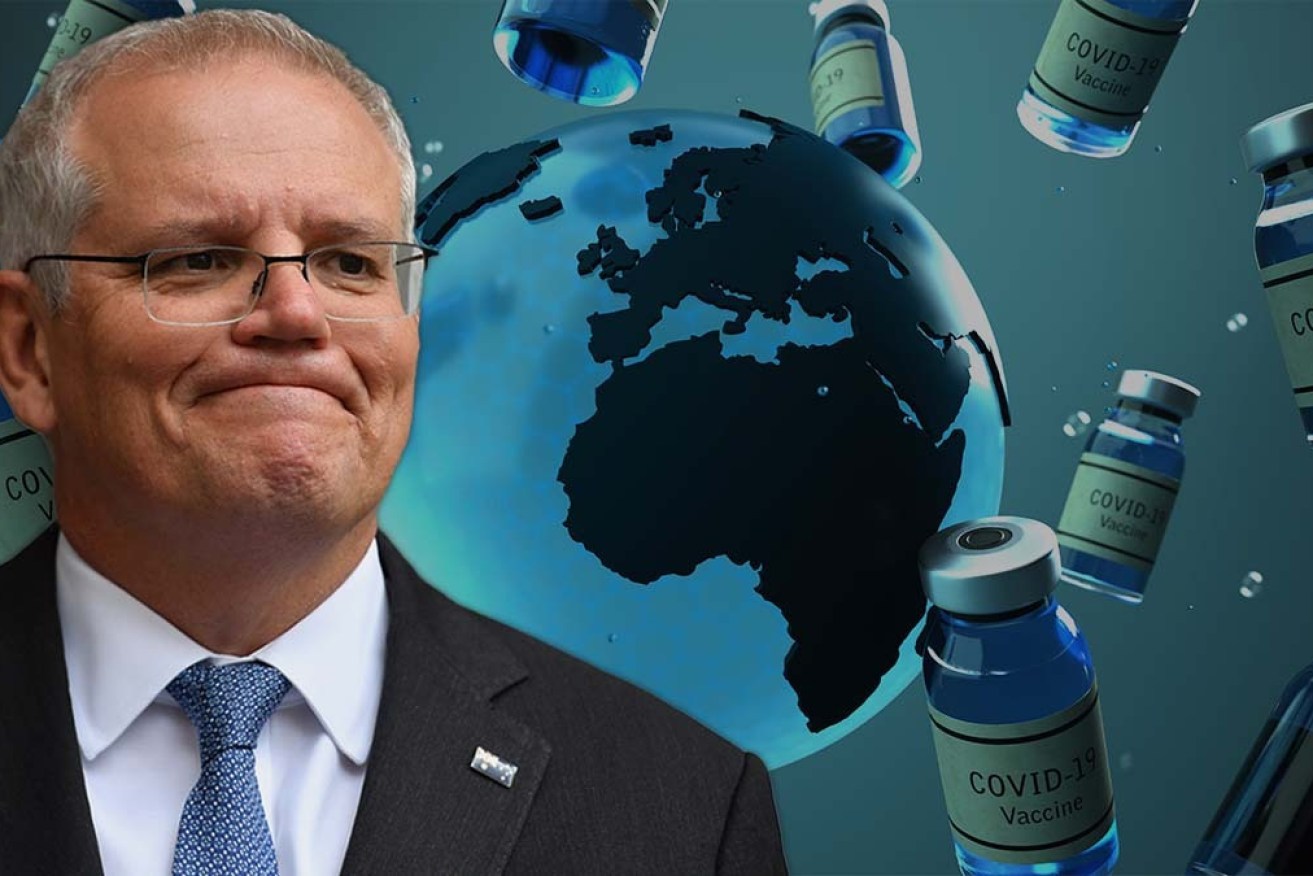‘Not protecting us’: Australia urged to answer vaccine plea to stop new variants


Aid groups say the Morrison government must step up its funding for vaccine equity. Photo: TND
Australians have been warned their risk of catching new COVID-19 variants will be much higher unless wealthy nations do more to help protect the world’s poorest people from the coronavirus.
Aid groups are urging the Morrison government to step up after a World Health Organisation-backed effort to distribute vaccines asked for an urgent $US5.2 billion ($7.1 billion) funding injection.
The COVAX facility, which has so far donated a billion vaccines to low-income nations – about half its original target – said the money will help it hand out 600 million vaccines in 2022 and set up jab clinics.
The latest UN data shows while vaccination rates are now 67 per cent in high-income nations, they’re just 11 per cent across low-income nations.
Tim Costello, spokesperson for End COVID For All – a coalition of leading aid groups – said Australia must make a $250 million commitment under the funding round through the federal budget in March.
He warned that if efforts to vaccinate the world fail, Australians will feel the pain of another surge like Delta or Omicron.
Both variants emerged in nations with vaccine rates below 50 per cent.
“The government like to say they’re protecting us,” Mr Costello told TND.
“But they’re not. We have the highest vaccine rates in the world and we are still largely shut down due to Omicron, especially supply chains.
“There’s no way to close our borders to this … the world is a water bed, if you press down in South Africa and India, the water rises in Australia.”
Catherine Bennett, chair in epidemiology at Deakin University, said it was vital higher-income nations step up support for global vaccine efforts.
“The biggest threat ahead is the emergence of new variants,” Professor Bennett told The New Daily.
“The risk of mutation is directly related to the opportunity for mutation to occur, or the number of viral replications happening around the world.”

COVAX has enabled people like Nepal resident Chamak Sunuwar, 83, to access vaccines. Photo: Getty
Urgent warning: Australians at risk
Mr Costello said Australia is particularly vulnerable to new variants as the international border begins to reopen and migrant workers return.
About 4450 visitors from countries with vaccination rates lower than 50 per cent landed in Australia in November, according to ABS figures.
That number is likely to increase, given more than 91,000 people came to Australia from these countries in November 2019, before COVID-19.
Visitors are fully vaccinated but can still catch and spread COVID-19.
“The whole world is biologically connected by this invisible virus,” Mr Costello said.
“We rich countries snapped up five times the number of vaccines that lower-income nations did … we must contribute our fair share.”
Professor Bennett said global vaccine coverage won’t necessarily stop COVID infections but will make them less severe, which reduces how easily the virus is able to mutate into new variants.
Global vaccine rollout is behind
The WHO and other global health bodies have also warned about the risk of new variants emerging unless 70 per cent of the world can be vaccinated by midway through 2022 – it is currently only 50.5 per cent.
The below WHO graph captures the inequality of the global rollout.
“The pandemic is far from over,” Professor José Manuel Barroso of WHO-backed vaccine effort Gavi said in a statement on Thursday.
“While we make progress, we must ensure that we can continue to respond to the needs of the countries we support.”
Though the Morrison government has pledged $500 million over three years to vaccine equity across the Indo-Pacific, Mr Costello said vaccine equity is a global problem requiring an additional financial commitment.
Countries such as Austria, Belgium and Spain have already made new funding pledges under COVAX’s latest call, with $192 million raised.
New Zealand just promised NZ$9 million ($8.4 million) to the effort.
“This further contribution to the COVAX AMC is part of our global COVID-19 response and ensures that more people in developing countries are able to protect themselves and their families,” NZ’s foreign affairs minister Nanaia Mahuta said in a statement on Thursday.
Research compiled for the COVAX facility estimates one to 1.2 million lives could be saved in 2022 by adequate vaccination efforts.
The economic costs could be reduced by up to half, Gavi said.








